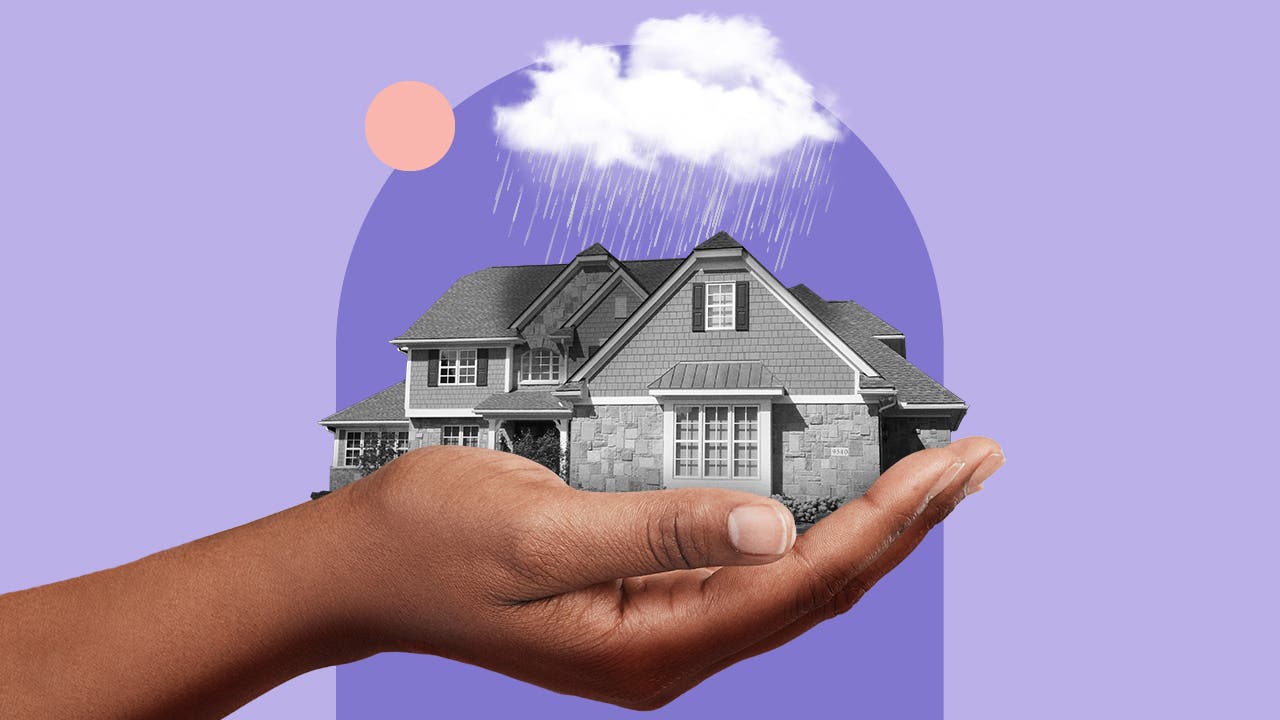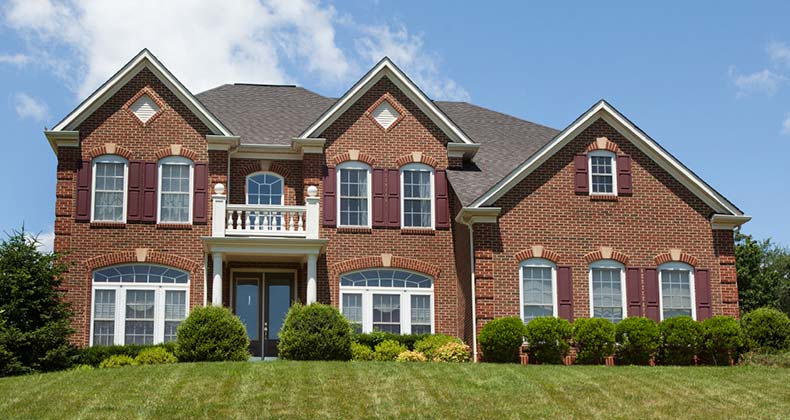Should you buy a house during a recession?

Key takeaways
- Economic uncertainty makes recessions a tricky time to buy — or sell — a house.
- Slower hiring, layoffs and belt-tightening make it harder for some buyers to qualify for a mortgage.
- However, as long as your employment and finances remain stable, buying a house during a recession can actually be advantageous.
Back in 2022, as inflation grew and gross domestic product (GDP) declined, many feared that the country was headed toward a recession. The Federal Reserve raised interest rates dramatically — primarily to combat inflation, which has in fact come down significantly. But Fed rate hikes affected other segments of the economy as well, including the housing market.
Interest rates are not directly tied to mortgage rates, but typically, as the one increases, so does the other. The result of pricier mortgages has been a slower housing market, with fewer buyers able to afford the purchase.
A recession typically leads to a reduced level of real estate activity, as fewer people are willing or able to buy.— Greg McBride, CFA, Bankrate chief financial analyst
“A recession typically leads to a reduced level of real estate activity, as fewer people are willing or able to buy,” says Greg McBride, CFA, Bankrate’s chief financial analyst. “But this won’t necessarily lead to lower home prices if the supply of homes available for sale is very low.”
In fact, the supply of homes is still relatively low, and home prices are very high. And while odds of a recession had been fairly low before the Trump administration’s tariffs, they have now shot up significantly, according to Bankrate’s Q1 Economic Indicator Survey. If you’re hoping to buy a home, what does this mixed bag of conditions mean for you? Here’s everything you need to know about buying a house during a recession.
What is a recession?
There has been considerable debate over the definition of the term. By one very simple definition, a recession is when an economy experiences two consecutive quarters of negative growth — meaning GDP shrinks for two quarters in a row. That did happen in 2022. But most experts argue that a true recession requires more than just one indicator.
Other factors, including the rate of unemployment, income, consumer spending, retail sales and industrial production all factor into determining whether or not there is a recession. The official call is made by the National Bureau of Economic Research’s Business Cycle Dating Committee. That group takes into account many different factors, including revised GDP data that becomes available months after the initial data is released, to make an official determination.
The National Bureau of Economic Research has not declared one. However, Bankrate’s most recent survey reports that economists put the odds of a U.S. recession over the next 12 months at 36 percent.
Are we experiencing one now?
The National Bureau of Economic Research has not declared one. However, the better question might be not whether we are experiencing a recession right now, but whether one is looming. Bankrate’s most recent survey reports that economists put the odds of a U.S. recession over the next 12 months at 36 percent — a big jump from just 26 percent in the fourth quarter of 2024.
The housing market during a recession
Economic recessions — and the response to them by the Federal Reserve — can affect the housing market in a number of ways.
During a traditional recession, the Fed will usually lower interest rates. This creates an incentive for people to spend money and stimulate the economy. It also typically leads to more affordable mortgage rates, which leads to more opportunity for homebuyers.
But recently, the Fed has placed greater priority on defeating inflation — even if it requires slower economic growth. Higher rates typically make the cost of getting a mortgage more expensive. This, in turn, lowers the demand for homes by pushing the bounds of affordability.
The buyers who remain in the market during times of uncertainty like this often change what they are looking for — they may find themselves in the market for a different type of home than they would be otherwise.
“There is a direct correlation between how much home a borrower can afford and the prevailing rates,” says H. Jack Miller, president of Gelt Financial in Boca Raton, Florida. “Most people are buying as much home as they can afford.”
What happens to house prices in a recession?
While the cost of financing a home increases when interest rates are on the rise, home prices themselves may actually decline. “Usually, during a recession or periods of higher interest rates, demand slows and values of homes come down,” says Miller. That has not been the case in today’s market, though, which further complicates the matter.
Decreased demand typically means that fewer buyers are competing for the same inventory of homes. When that competition dries up, sellers lose the upper hand they enjoy in a robust seller’s market like we’ve seen in recent years. In this scenario, they would likely have to settle for less than their initial asking price — or at least less than they might have gotten in a more competitive market. And while that’s bad news for sellers, it can be good news for hopeful homebuyers.
Buying a house during a recession
Recessions often mean slower hiring, and even job loss. Obviously, this can make it harder to qualify for a mortgage and push buyers out of the market. But if you can afford to, it’s not necessarily a bad time to buy. In fact, if you remain financially stable, Miller argues a recession can actually be a good time to buy a home.
“Some people hold off on buying when this happens, but I think this is a mistake,” Miller says. “When rates go up and demand slows, buyers can usually get a better deal on the home they want.” You can always refinance when rates go back down again.
“Many people won’t buy a home when the economy is in bad shape,” says McBride. “Periods of very low mortgage rates that coincided with a weak economy saw a housing market that was comatose. But this also provided an opportunity for better deals for those who were willing to buy.”
With all of that in mind, let’s look at some of the major upsides and disadvantages to buying during a recession.
Pros
- Less competition: A recession often puts people in a difficult financial position, leaving them unable to afford a new home or unwilling to risk it. This results in less competition within the market for those who can still afford it.
- Lower prices: With fewer buyers who can afford the purchase, home sellers will likely no longer see multiple offers or bidding wars for their properties. This can lead to lower home prices.
- Lower rates: During a recession, the Federal Reserve will often lower interest rates to stimulate the economy. This can result in more favorable rates for borrowers getting mortgage loans.
Cons
- Stricter lending requirements: To protect their business during a recession, lenders may institute stricter requirements on mortgages to decrease the possibility of a borrower being unable to fulfill a loan.
- Fewer options available: With fewer house-hunters and lower prices, sellers may take their home off the market or opt to wait it out, leaving less available inventory for buyers to choose from.
- Economic uncertainty: Typically, many jobs are lost during a recession, and other conditions may cause people’s finances to be less than stable as well. Liquidity can be important during a period of economic instability, and having your cash tied up in real estate may not be ideal.
Bottom line
Buying a home during a recession can sometimes be a good idea — but only for people who are lucky enough to remain financially stable. If you’re thinking about buying during an economic downturn, be sure to enlist the help of an experienced local real estate agent. Not only do agents know their markets well, they will also work to get you the best deal in any given situation, including a recession.
FAQs
Why we ask for feedback Your feedback helps us improve our content and services. It takes less than a minute to complete.
Your responses are anonymous and will only be used for improving our website.







